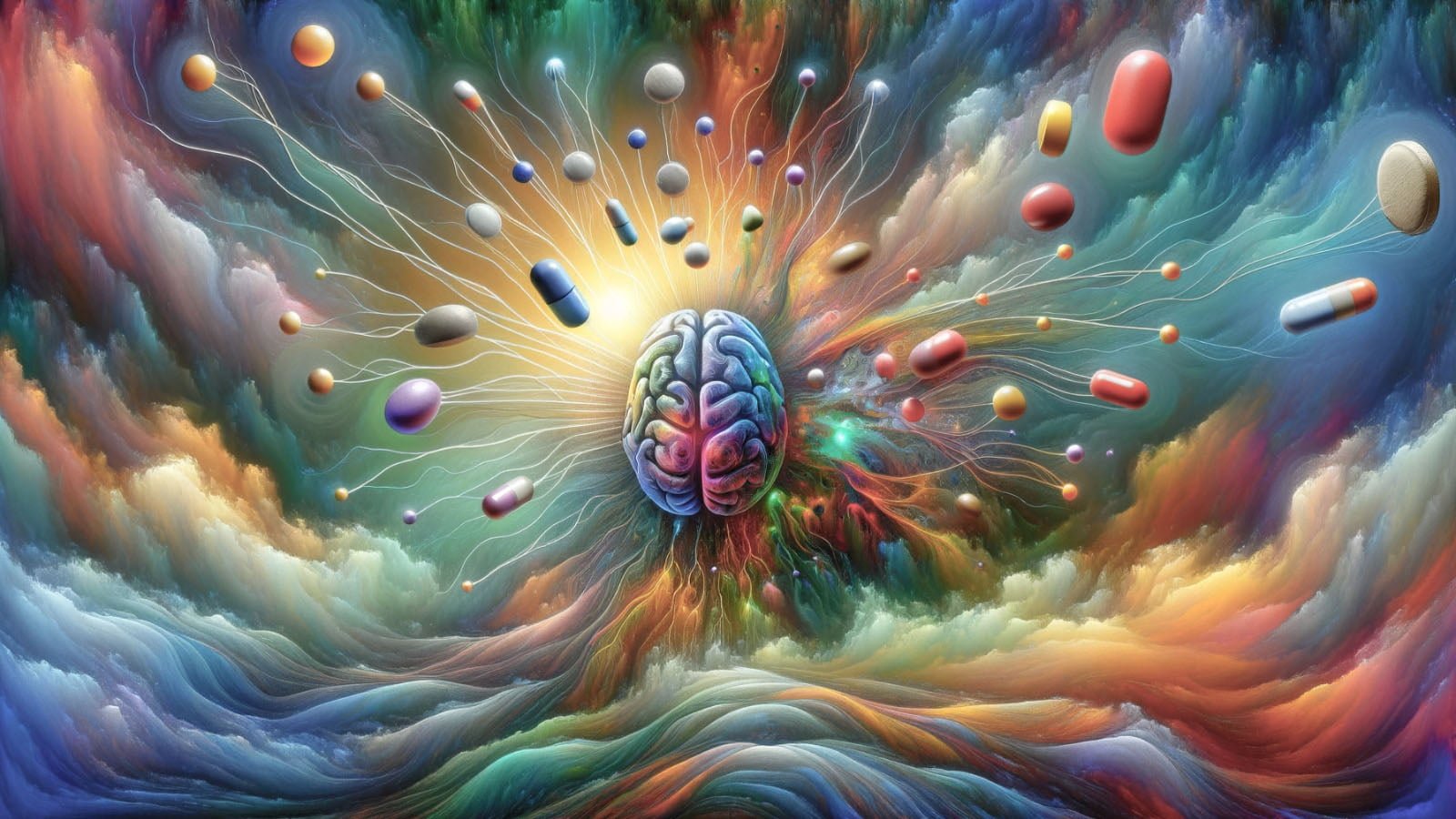Does Caffeine Make Adderall Less Effective?

Does caffeine really make Adderall LESS effective?
If you are familiar with Adderall, you may be wondering how it interacts with caffeine.
Adderall is a combination drug that contains amphetamine and dextroamphetamine, and it is commonly used to treat attention-deficit hyperactivity disorder (ADHD) and narcolepsy.
On the other hand, caffeine is a popular stimulant found in coffee, tea, and energy drinks.
In this article, we will explore the relationship between caffeine and Adderall, and whether caffeine affects the effectiveness of Adderall.
Understanding Adderall and Its Effects
Adderall is a medication commonly prescribed for Attention Deficit Hyperactivity Disorder (ADHD). It is a central nervous system stimulant that helps improve focus, attention, and impulse control in individuals with ADHD. Adderall contains two active ingredients, amphetamine and dextroamphetamine, which work by increasing the activity of certain neurotransmitters in the brain, specifically dopamine and norepinephrine.
These neurotransmitters play crucial roles in regulating attention, impulse control, and other cognitive processes. By enhancing the levels of these neurotransmitters, Adderall helps individuals with ADHD to better regulate their behavior and improve their focus and attention span.
Some notable benefits of Adderall are:
- Improved Focus and Concentration: One of the key benefits of Adderall is its ability to enhance focus and concentration. It stimulates the release of certain chemicals in the brain, helping individuals stay alert and attentive. This can be particularly beneficial for those with attention deficit hyperactivity disorder (ADHD), as it helps them better manage their symptoms and improve their overall productivity.
- Increased Energy Levels: Adderall is known to provide a boost in energy levels, making it easier for individuals to stay motivated, engaged, and productive throughout the day. This can be especially helpful for those who struggle with fatigue or lethargy, allowing them to accomplish more tasks efficiently.
- Enhanced Cognitive Function: Adderall has been shown to enhance cognitive function, helping individuals think more clearly, process information faster, and respond more effectively. It can improve memory retention, decision-making abilities, and problem-solving skills, making it beneficial for students, professionals, and anyone who needs to perform mentally demanding tasks.
- Improved Mood and Well-being: The stimulant effects of Adderall can also have a positive impact on an individual’s mood and overall sense of well-being. It increases the release of dopamine and norepinephrine, two neurotransmitters responsible for feelings of pleasure and motivation. This can lead to an improved mood, increased motivation, and a sense of accomplishment, helping individuals to feel happier and more content.
- Enhanced Weight Management: Adderall has been found to have appetite-suppressing effects, which can aid in weight management. It reduces cravings and increases feelings of fullness, making it easier for individuals to make healthy food choices and maintain a balanced diet. However, it is important to note that Adderall should never be used solely for weight loss purposes and should always be taken under the guidance of a healthcare professional.
- Improved Time Management: With its ability to increase focus and productivity, Adderall can help individuals better manage their time. It allows them to stay organized, prioritize tasks, and complete them in a timely manner. This can be particularly beneficial for students or professionals who need to juggle multiple responsibilities and deadlines.
- Enhanced Performance in Work and Academics: Due to its cognitive-enhancing effects, Adderall can boost performance in academic and work settings. It can improve attention span, memory, and overall cognitive abilities, allowing individuals to perform at their best. This can lead to better grades, improved job performance, and increased opportunities for success.
- Increased Motivation and Drive: Adderall has been reported to increase motivation and drive in individuals, helping them stay focused on their goals and tasks. It can provide a sense of purpose and determination, making it easier to overcome obstacles and achieve desired outcomes. This can be particularly beneficial for those who struggle with motivation or lack of interest in daily activities.
The Role of Caffeine in the Body
Caffeine is a well-known stimulant that has various effects on the body. We all know about the power of that morning coffee to keep us going throughout the day!
When consumed, it acts on the central nervous system, which is responsible for controlling many bodily functions. Caffeine exerts its effects by blocking the action of adenosine, a neurotransmitter in the brain that promotes relaxation and sleep.
The most notable benefits of caffeine are:
- Improved Cognitive Function: Adenosine receptors play a crucial role in the central action of caffeine. By antagonizing these receptors, caffeine increases alertness and arousal, making individuals feel more awake and focused. Moreover, caffeine stimulates the release of neurotransmitters like dopamine, which contributes to feelings of pleasure and motivation.
- Improved Energy Levels: Caffeine also affects the cardiovascular system by increasing heart rate and blood pressure. This stimulatory effect on the heart can be beneficial in certain situations, such as enhancing athletic performance or temporarily improving concentration and mood. However, individuals with pre-existing heart conditions should be cautious and consult with a healthcare professional before consuming large amounts of caffeine.
- Thermogenic Effects: Caffeine also affects metabolism. It has been shown to increase metabolic rate, leading to a higher rate of calorie burning. This thermogenic effect can aid in weight loss and improve exercise performance.
While moderate caffeine consumption is considered safe for most individuals, excessive intake can lead to negative side effects like restlessness, anxiety, insomnia, and digestive issues.
Interaction Between Caffeine and Adderall
The interaction between caffeine and Adderall in the body can lead to a synergistic effect. Caffeine is a stimulant that works by increasing the heart rate and stimulating the central nervous system. Adderall, on the other hand, contains amphetamine, which also acts as a stimulant by targeting neurotransmitters in the brain.
When caffeine and Adderall are taken together, they can enhance each other’s effects.
This can result in increased heart rate, alertness, and energy. However, it is important to note that taking larger amounts of caffeine and Adderall can lead to unpleasant symptoms and even stimulant overdose.
It is recommended to use caution when combining caffeine and Adderall, as excessive stimulation of the nervous system can put a strain on the body. This can manifest as symptoms such as chest pain, anxiety, and an inability to concentrate. If these symptoms occur, it is important to speak to a medical professional.
Additionally, it is important to be aware of other medications that should not be combined with Adderall. This includes MAO inhibitors, alcohol, and foods high in vitamin C. It is always best to consult with a doctor before taking Adderall and to disclose any other medications being taken to avoid any potential interactions.
Overall, caffeine and Adderall can have a potent effect on the body when taken together. It is important to use them in moderation and under the guidance of a healthcare professional to ensure safe usage.
Does Caffeine Make Adderall Less Effective?
Caffeine can potentially decrease the effectiveness of Adderall. It is advised not to consume caffinated substances, like coffee, while on Adderall. The combination can increase the risk of adverse effects like heightened blood pressure, increased heart rate, restlessness, and sleep disturbances. Even small amounts of coffee may exacerbate these side effects. Therefore, it’s best to avoid caffeine when taking Adderall.
To better understand how Adderall affects caffeine, we need to start with an important question – does caffeine reduce Adderall absorption?
Caffeine can significantly impact the effectiveness of Adderall.
Some research indicates that consuming caffeine concurrently with Adderall, or within a few hours of its intake, can reduce Adderall’s absorption, thus diminishing its efficacy and potentially amplifying adverse side effects.(1) With this in mind, there are minimal studies to support these claims.
For those of you who are coffee lovers that need your daily ‘fix’, there may be hope. Does coffee make Adderall work better? The answer could be yes. Premium caffeine supplements could take your Adderall supplementation to a new level.
Other studies suggest that caffeine may actually enhance the effectiveness of Adderall by further stimulating the central nervous system.(2) With mixed claims, it’s hard to really understand what the effect of mixing caffeine and Adderall together will bring on. It is a combination that has different effects for each individual.
What we can determine are the factors that influence the potential effects of this combination.
Read on to learn more!
Factors Influencing the Interaction Between Caffeine and Adderall
It is important to note that the interaction between caffeine and Adderall can vary from person to person. Several factors can influence the interaction between caffeine and Adderall, including:
- Dosage: The dosage of both Adderall and caffeine can affect the intensity of their effects and how they interact with each other. Higher doses of either substance may lead to increased stimulation and potential side effects.
- Timing: The timing of caffeine consumption relative to Adderall intake can influence the interaction. Consuming caffeine before or after taking Adderall may result in different effects, as caffeine has a half-life of a few hours, while Adderall can last up to several hours.
- Individual Metabolism: Each person metabolizes caffeine and Adderall differently, which can impact how the two substances interact in the body. Some individuals may be more sensitive to the effects of caffeine, while others may metabolize Adderall at a slower or faster rate.
- Tolerance: Regular caffeine or Adderall users may develop tolerance to the effects of these substances. This can impact the interaction between caffeine and Adderall, as higher doses may be needed to achieve the desired effects.(3)
Precautions When Combining Adderall and Caffeine
While the combination of caffeine and Adderall may be safe for most individuals when consumed in moderation, it is essential to take some precautions to ensure your well-being:
- Consult with a healthcare professional: If you are considering combining caffeine and Adderall, it is advisable to consult with a healthcare professional. They can provide personalized advice based on your specific health condition and medication regimen.
- Monitor your caffeine intake: Pay attention to your caffeine consumption and avoid exceeding recommended daily limits. Excessive caffeine intake can lead to jitteriness, increased heart rate, and other side effects.
- Be aware of potential side effects: Some individuals may experience increased restlessness, anxiety, or insomnia when combining caffeine and Adderall. If you notice any adverse effects, it is important to speak with your healthcare professional.
- Practice responsible use: Use both caffeine and Adderall responsibly and as prescribed. Misuse or abuse of either substance can have harmful consequences for your health.
- Switch your medication: If necessary, you may consider safe and effective alternatives to Adderall.
Conclusion
In conclusion, the interaction between caffeine and Adderall can have varying effects on different individuals.
When it comes to the question of whether caffiene can make Adderall more intense, or get it to work faster, you will need to consider individual influencing factors. While some people may find that caffeine enhances the effects of Adderall, others may not notice a significant difference.
It is important to approach the combination of these substances with caution and follow medical advice to ensure safe and effective use. If you have any concerns or questions about the use of caffeine and Adderall, consult with a healthcare professional to gain clarity on the next steps.
- White, B C et al. “Caffeine reduces amphetamine-induced activity in asymmetrical interaction.” Pharmacology, biochemistry, and behavior vol. 20,3 (1984): 387-9. doi:10.1016/0091-3057(84)90276-4 ↩
- Franke, Andreas G et al. “What users think about the differences between caffeine and illicit/prescription stimulants for cognitive enhancement.” PloS one vol. 7,6 (2012): e40047. doi:10.1371/journal.pone.0040047 ↩
- Jain, Raka, and Stephen G Holtzman. “Caffeine induces differential cross tolerance to the amphetamine-like discriminative stimulus effects of dopaminergic agonists.” Brain research bulletin vol. 65,5 (2005): 415-21. doi:10.1016/j.brainresbull.2005.02.024 ↩
